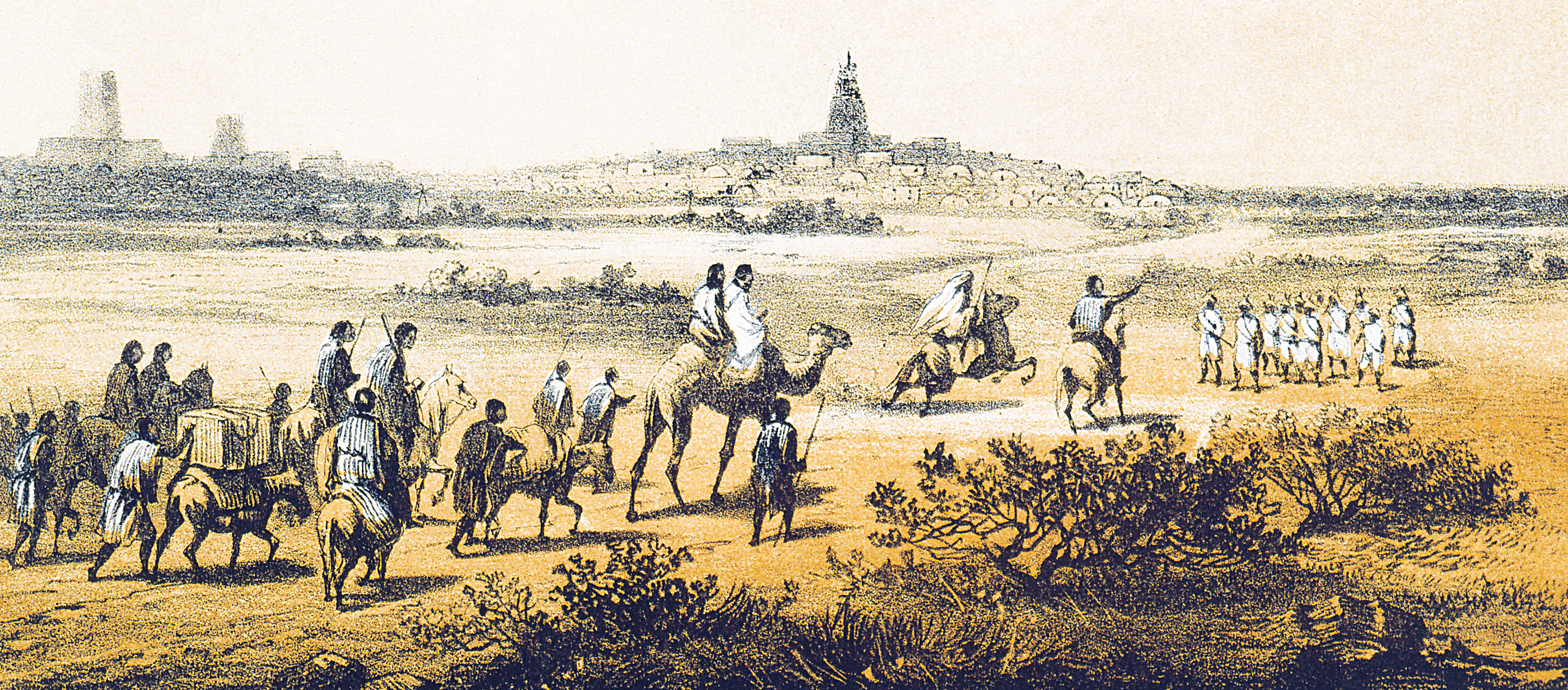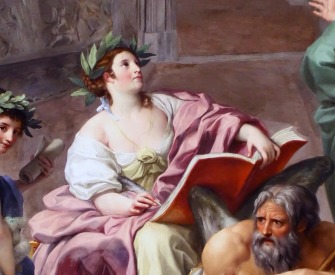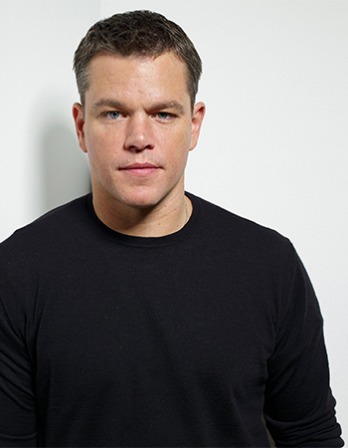From many leagues came citizens high and low to see the pontiff, to hear his message. Those unable to find lodging put up tents. We are told that the fields near Clermont resembled a military encampment. Peter the Hermit was seen, albeit chronicles from those days disagree as to whether he spoke.
All in good time His Holiness came forth, attended by cardinals and bishops, a tall man robed in white. When he lifted his hands, the multitude fell silent. He spoke with sweet and persuasive eloquence:
“O Frankish men, in how many ways has our Lord blessed you. How fertile is your land. How steadfast your faith. How indisputable your courage. To you, accordingly, do we address our brief. We wish you to know what just and grievous cause has brought us hence. We hear ominous tidings. We hear of a malevolent race withdrawn from the communion of our belief. Turks, Persians, Arabs, accursed, estranged from God, that have laid waste by fire and sword to the walls of Constantinople, to the Arm of Saint George. Until now Constantinople was our bulwark, our rampart. Now it stands disfigured, imperiled. How many churches have these enemies of God polluted, torn asunder? We hear of altars desecrated by filth from Turkish bodies. What else can we say? What more shall be said? To whom, therefore, does the task of vengeance fall, if not to you? Be you now armed with the sign of the cross and step forth to battle enemies of our Lord. Let no obstacle dissuade you. Let no possession detain you, nor family solicitude. Recall the words of thy blessed Savior. Whosoever shall abandon for my name’s sake his house, or his brethren, or his sisters, or his father, or his mother, or his wife, or his children, or his property, shall receive a hundredfold and shall inherit everlasting life. O ye Franks. Palestine is a land flowing with milk and honey, precious in the sight of God, a place to be divided. Therefore we call upon you. Wrest from that accursed race the promised land, Jerusalem, fruitful above other lands, center of the earth, made illustrious by His sojourn, consecrated by His passion, redeemed by His death, glorified by His burial. The way is short, the struggle brief. Fear not. A bed awaits you in Paradise. Therefore march assured in expiation of your sin. Go assured that after this world you shall know imperishable glory in the world to come. Let the host of the Lord rush against His foe. Now may the army of God cry against His enemies. Deus lo volt! Deus lo volt! Deus lo volt!”
And the shout rang across the meadow. God wills it! We are told that while Pope Urban addressed the multitude, an apparition of the Holy City glowed in the sky above his head. Does not a certain order embrace all things?

Arrival at Timbuctoo, Mali, illustration from Heinrich Barth’s Travels and Discoveries in North and Central Africa, c. 1857.
Bishop Adhémar of Le Puy knelt before the pontiff, asking leave to go. His Holiness decreed that the Bishop Adhémar should go and rule the host. This was as it should be. Nine years earlier he had made the pilgrimage and now was first to accept the cross.
Next came envoys from Raymond, count of Toulouse, half-Spanish through his mother, Princess Almodis of Barcelona. He was fifty-three years old, scarred by ancient wounds, had lost one eye battling the Moors. Count Raymond would undertake the journey, his blue standard leading Provence mountaineers with saddles fashioned from soft Cordoba leather, reins weighted with gold ornament. He would bring his youthful wife Elvira, princess of Aragon, and their newly born son. Thus would they journey toward another life, realizing that duty imposed by Holy Scripture which bids us transcend the self.
News of this assembly at Clermont traveled across Europe faster than swift horsemen, more quickly than fire consuming a parched field. To the Netherlands, Scandinavia, Germany, Italy, hamlet to village to city. Thousands rushed to take the cross, noble and commonage. Ironsmith, groom, villein, carter, fletcher, knave, chandler, monk, fisherman, cleric, teacher, young, old, thieves absolved of crime through papal edict, debtors released from claims of creditors rising from the abyss of misery, touched by the light, impelled to take up arms against enemies of the Lord. Since the creation of the world, what has occurred so marvelous as this exodus toward Jerusalem?
Portents of divine favor blazed overhead. Mounted warriors, infidel and Christian, battled with fiery swords. Stars hurtled earthward, each a dying pagan. Clouds redder than blood darted to the zenith. In the east a comet was observed changing place by sudden leaps. A child was born with double limbs, another with three heads. A woman two-years pregnant bore a child that knew how to speak.
Does not a wheel turn slowly at first? Now faster, faster. Knights mortgaged their estates, great or small, farmers sold their plows, artisans their tools, each after his fashion preparing to liberate the Holy Land. Some who felt reluctant or undecided got unwelcome gifts to express contempt, a knitting needle, a distaff. Meanwhile the clerics of France distributed swords, staves, pilgrim wallets.
As to women, thousands employed smoking hot iron in the form of a cross to sear themselves on the breast and stained their wounds with red ointment. Whether burnt in flesh or cut from silk or woven gold to exhibit on mantles, tunics, cassocks, was it not appropriate that Christ’s servants be thus identified?
How many pilgrims left home? Who counts the grains of wheat in a field? From mist-shrouded uplands came Scots clothed in shaggy skins, legs bare, each with his fleas and sack of victual. Now here came the Welshman out of his forest, the Dane who would forswear drinking to make a pilgrimage, the Northman turning his back on raw fish. From strange distant lands came unfamiliar men to disembark at Frankish ports, bawling a language so foreign that, unable to make themselves understood, they laid two fingers in the form of a cross to show in default of words how they wished to join this expedition.
Thousands marched toward Amiens lightly provisioned, crudely armed, taut with desire to swarm about Peter the little hermit, joyful and pious, eager to follow. They are said to have been ripe with laughter, full of badinage so confident were they, numerous as pebbles at a beach, fearless in their numbers, peregrini Christi. They busied themselves cutting scarlet crosses for their tunics while he preached. Yet what were these innocents who expected to vanquish a Saracen horde? Hapless peasants, mock monks, halegrins, ribalds, druggists, pick-thanks, beribboned harlots, sodomites, magicians, catamites, those with hairless shanks, cripples that begged a sou from the porch at Notre Dame, those who chanted hymns for centimes and threw mad fits, night strollers.
How impatient to liberate Jerusalem were they? Frankish barons fixed the month of August for departure. But this shoal of blind fish, this bawling herd of misbegotten witlings refused to wait. Villeins fitted oxen with shoes as though shoeing knightly chargers, harnessed lumbering steeds to carts heaped with possessions until they might be taken for hayricks alive with children. In April they set forth to crush a pagan host, unwary lambs bleating on the track of their pastors.
From Deus lo Volt! Pope Urban II presided over the ten-day Council of Clermont, concluding his speech that christened the First Crusade with “God wills it.” Connell is a novelist, poet, short-story writer, and essayist whose provocative novel Mrs. Bridge was published in 1959 and whose best-selling historical narrative Son of the Morning Star: Custer and the Little Bighorn was published in 1984.
Back to Issue





